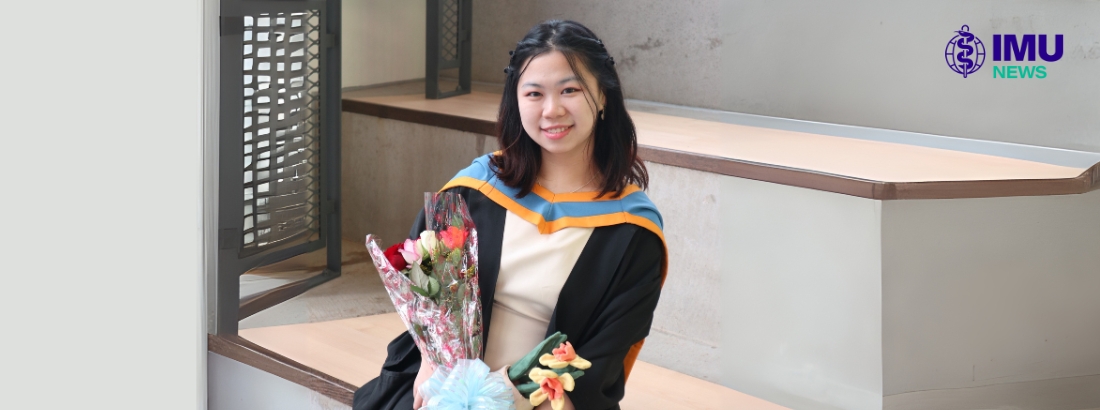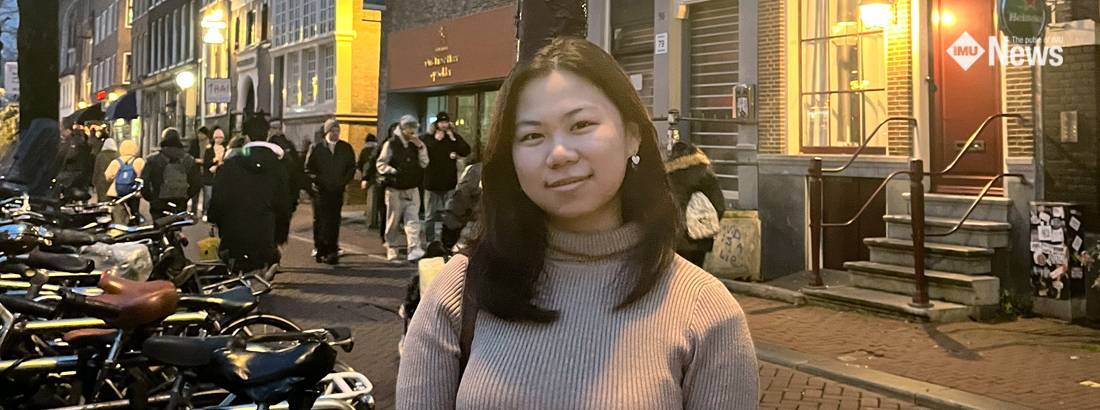I am Chang Hui Yun, an IMU Biomedical Science graduate who pursued a Master’s in Forensic Science at the University of Strathclyde (UoS). My passion for forensic science stems from a love of investigations, puzzles, and justice, fuelled by crime series. Despite Malaysia’s limited forensic career opportunities, I chose IMU’s Biomedical Science programme, which included forensic science in its final year, as a stepping stone.
During an IMU Open Day, I discovered the partnership between IMU and UoS, allowing biomedical science graduates to pursue a one-year Master’s in Forensic Science. This strengthened my resolve to follow my dream.
Application Process
This Master’s programme at UoS is ranked No.1 in the UK. Determined to secure a spot for the September 2023 intake, I applied in October 2022 and received a conditional offer in December. However, my academic transcript would only be available in November 2023, which would delay my enrolment.
I sought advice from IMU’s international office, which helped verify my academic results and provided a confirmation letter stating that my degree was taught in English. Despite this, UoS insisted on an official transcript, creating a tight timeline for visa processing. Nevertheless, IMU’s international office liaised with UoS, and I finally received my unconditional offer and Confirmation of Acceptance for Studies (CAS) in mid-July. Thanks to IMU’s support, I secured my visa, accommodation, and flight by mid-August—ready for the next chapter.
Academic Experience at University of Strathclyde
Unlike IMU’s intense semester structure, UoS’s programme had only four modules per semester, with two contributing to the cGPA. While the exams covered fewer subjects, they remained challenging. Self-directed learning was crucial, as online materials had to be reviewed before workshops and lab sessions.
The grading structure was similar to IMU, comprising 30% coursework, 70% final exams, and a 100% final dissertation. Presentations were part of the curriculum and were initially intimidating due to language concerns. However, I eventually gained confidence through practice and feedback from lecturers.
Forensic Training and Practical Experience
UoS offered hands-on forensic training through workshops, professional talks, and specialised modules. The first semester covered forensic investigation fundamentals, with an option to specialise in forensic biology or chemistry in the second semester. I chose chemistry, focusing on drug analysis and explosives investigation. Lab sessions involved handling High-Performance Liquid Chromatography (HPLC) and Gas Chromatography-Mass Spectrometry (GC-MS), which are key forensic techniques.
A highlight was the Practical Crime Scene Exercise, where we investigated simulated crime scenes, processed evidence, and applied real-world forensic procedures. This culminated in a mock court trial, where we presented findings as expert witnesses. The trial, held in collaboration with UoS’s Law School, provided invaluable experience in testifying under cross-examination.
Research and Dissertation
For my dissertation, I researched presumptive colour tests for xylazine, an emerging drug of abuse. Despite residency restrictions preventing me from working in forensic laboratories, I contributed to forensic research by identifying effective colour tests for xylazine. My findings were significant enough to be considered for publication.
Post-graduation, I continued to research on xylazine, successfully crystallising its reaction product using X-ray crystallography—an achievement that further validated my forensic chemistry expertise.
Life Beyond Academics
Outside studies, I joined the Malaysian Society Club and took on a leadership role as Publicity Director, organising cultural events like Hari Raya and Deepavali celebrations. A memorable experience was participating in a Ceilidh dance night, immersing myself in Scottish traditions. With a flexible study schedule, I explored new cultures and travelled across Europe, taking advantage of affordable flights.
Career Prospects and Challenges
UoS’s MSc programme is accredited by the Chartered Society of Forensic Sciences, granting associate membership and access to networking events. However, foreign students face employment challenges in UK forensic labs, as a minimum of three years of residency is required. A Master’s counts for one year, and a UK Graduate Visa allows two additional years, making forensic employment possible with strategic planning.
Despite challenges, my research, networking, and academic achievements have strengthened my forensic career prospects. I aspire to work in forensic investigation rather than research, preferring hands-on forensic analysis over academic publishing.
Final Reflections and Advice
Studying forensic science in the UK has been a transformative journey, equipping me with practical forensic skills and confidence. The experience of processing crime scenes, analysing forensic evidence, and testifying in a mock court solidified my passion for forensic science.
For IMU Biomedical Science students considering this path, the UoS partnership is an excellent opportunity. Be prepared for challenges, plan your residency pathway, and embrace every learning experience. With determination and the right strategy, a forensic science career in the UK is achievable.
This journey has shaped my academic, professional, and personal growth, reinforcing my passion for forensic science. I am eager for the next chapter, knowing that every step has brought me closer to my dream.



No approved comments.